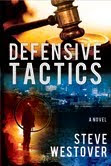 In the Reader's Digest, October 1950 edition, the Fable of the Gullible Gull is shared as a warning against dependency. The story is told of great flocks of sea gulls starving despite the good fishing waters nearby. Why were they starving? They were starving, because although there were plenty of fish to eat, the gulls did not know how to fish.
In the Reader's Digest, October 1950 edition, the Fable of the Gullible Gull is shared as a warning against dependency. The story is told of great flocks of sea gulls starving despite the good fishing waters nearby. Why were they starving? They were starving, because although there were plenty of fish to eat, the gulls did not know how to fish.For generations the gulls depended upon a fleet of shrimping boats which would toss out the scraps to the gulls, but then the fleet moved.
"The shrimpers had created a Welfare State for the sea gulls. The big birds never bothered to learn how to fish for themselves and they never taught their children to fish. Instead they led their little ones to the shrimp nets. Now the Sea gulls, the fine free birds that almost symbolize liberty itself, are starving to death because they gave in to the 'something for nothing' lure! They sacrificed their independence for a handout."
The fable concluded with this, "Let's not be gullible gulls. We must preserve our talents of self-sufficiency, our genius for creating things for ourselves, our sense of thrift and our true love of independence."
Marion G Romney taught that "all of our Church and family actions should be directed toward making our children and members self-reliant."
What great counsel. He also states that becoming self reliant is wonderful but it is only the means to an end. Self reliance allows for greater freedom, but then what we do with that greater freedom is the true test. We must make the right choices by serving others and helping them to become self-reliant. Once the others also become self-reliant, they can serve and bless the lives of others and the cycle of service continues.
Sometimes as parents, or even as members, or leaders within congregations we make the same mistake as the gullible gulls, looking for a quick fix instead of a more difficult but permanent fix. The gulls simply wanted to get food on the table for their families. There's nothing wrong with that, but they failed to teach their young ones how to provide for themselves. Do we sometimes do the same thing in providing an easy food order or payment of bills to individuals or families who perpetually have problems providing for themselves? Are we content to merely place food on the table and then go home feeling good about ourselves because we helped?
Recently I have had the opportunity to offer budgeting assistance to various members of my Ward who have been struggling. As we sat together and reviewed their income and expenses a woman asked me if I could simply take over their budget, tell them what to do and pay their bills for them each month. Of course my answer was "No". My task was not to offer a simple fix, but rather to teach her how to budget and stay within her means, cutting expenses where necessary. We discussed the sacred nature of the consecrated Fast Offering funds and explained why the church cannot, and should not continue to subsidize their lifestyle when there were things they could do to lift themselves and become self-reliant. Together we developed an action plan that would allow her and her husband to put off the shackles of dependency. This plan included some difficult actions but by talking through options together, they realized for themselves what needed to be done and therefor had ownership of the plan.
Over the next couple of months the family moved from an old large, energy guzzling home to a small home, reduced to one family vehicle, cut their cable bill and modified their cel phone plans, and sought after more gainful employment. Now, instead of relying on others to provide for their needs, they can meet their own needs by living within the means of their income.
This is a simple example, but a good one. Through this process the family moved from being satisfied in their dependence on others to being capable gulls, able to fish for themselves.






















